Healthy kidney donors aged 55 years and older enjoy similar longevity and cardiovascular health than similar non-donor adults, a new study shows. The authors matched 3368 American donors to older healthy non-donors and followed them for nearly 8 years between 1996 to 2006 and found out that that donors were not at a higher risk […]
Tag: Ontario
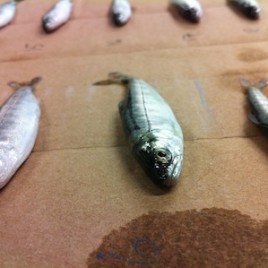
How salmon evolve to beat the heat
Researchers have discovered a link between egg size of chinook salmon and their ability to deal with warmer temperatures. The team captured spawning salmon and measured examined the genetic and maternal effects acting on the ability of offspring to tolerate heat; they found that mothers with larger eggs have more thermally tolerant offspring. As egg […]

Electrical charges help geckoes stick
Researchers have gained new insight into how geckos are able to walk on almost all surfaces, even upside down. Previous studies have attributed the stickiness of gecko toe pads to a type of force called van der Waals attractions that acts on the tiny hairs – called setae – covering the bottom of geckos’ toe […]
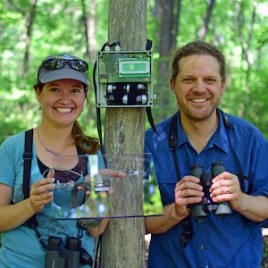
Night-time squawking helps track bird migration
New audio recordings confirm that Lake Erie is not a barrier to bird migration, but that birds pick their routes so as to stay above islands if possible. Migratory birds fly at night, so the team used audio recordings from the north shore of Lake Erie and from Pelee Island — in the middle of […]
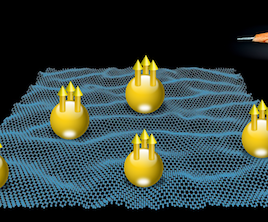
Could graphene help power quantum computers?
Researchers have found experimental evidence of strange quasiparticles in graphene that could be used as qubits, the bits of information processed by quantum computers. Graphene is a single-atom-thick lattice of carbon, but when two layers are sandwiched together and subjected to a magnetic field, strange entities can exist at the interface. Unlike the 3D world […]
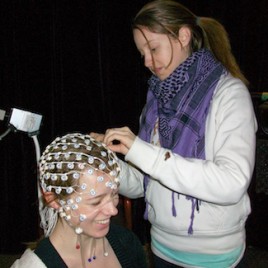
Bass beats in the brain
A new study helps explain why, in musical cultures from around the world, rhythm is usually played on low-voiced instruments while pitch is played on high-voiced ones. It turns out that when two sounds are played together, the human brain perceives timing differences in low-pitched sounds more easily than those in high-pitched sounds. In the […]
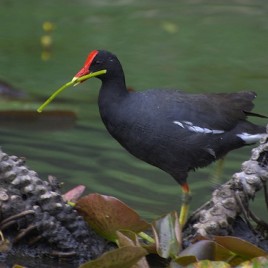
What’s in a bird’s name?
Scientific names of birds are not quite as accurate as one might think, but a new paper describes an online database that can help birders and biologists stay on the same page. A good example of changing names came in 2011, when the species known as the Common Moorhen was reclassified as a different species […]

Accurate drug testing on the go
Researchers have found a way to condense a complete drug-testing lab into a device the size of a backpack. The device uses a technique called microfluidic to extract compounds from a dried urine spot and subject it to complex chemical analysis by mass spectrometry. The new device detected cocaine and other drugs at concentrations down to […]
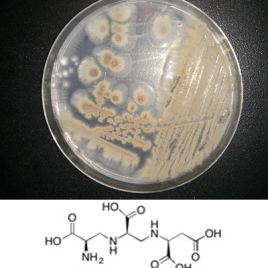
Fungal extract could combat drug-resistant bacteria
A chemical extracted from a fungus could help maintain the effectiveness of key antibiotics. In a new study, a fungal extract called aspergillomarasmine A was shown to inhibit NDM-1 and restore the effectiveness of carbapenems against certain bacteria in lab studies. Carbapenems are considered to be ‘antibiotics of last resort’ for many infections due to […]
Do morality tales actually work?
When it comes to getting kids to tell the truth, “Pinocchio” has got nothing on “George Washington and the Cherry Tree,” a new experiment suggests. Researchers tested 268 children aged 3 to 7 to see if they would admit to an innocuous lie. Those who were read stories like “Pinocchio” – in which liars are punished […]
Are you working out hard enough?
A new study shows that most people underestimate what qualifies as “moderate” or “vigorous” activity. The survey asked 129 adults aged 18 to 64 to jog on a treadmill at speed that corresponded to their impressions of “light,” “moderate,” or “vigorous” intensity. They then compared their heart rates to physical activity guidelines produced by Health […]
Winner – Three Minute Thesis
The winner of the 2014 Three Minute Thesis is Joseph Donahue, a biochemical engineering student from Western University, discussing his work on a portable bioreactor to treat wastewater. See his winning video here and check out the runners up – including the People’s Choice winner – here.
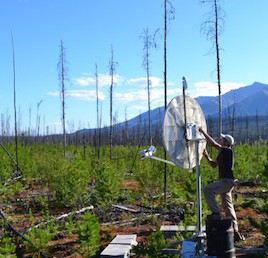
Understanding the surprising regularity of ‘slow’ earthquakes
Every 14 months, a ‘slow’ earthquake occurs beneath Vancouver island which last for 10 to 14 days; a new study helps explain why some slow quakes happen more frequently than others. Occurring along faults around the world at a depth of 25-40 km, slow earthquakes are undetectable by humans, but they vary in frequency, with […]
Can information and communications technology (ICT) help produce a greener Canada?
Imagine an app that helps monitor your water usage, or a “smart building” that tints its windows in response to sunlight in order to save on air conditioning costs. Such technologies exist, but putting them to work will require integration on a number of fronts: improving broadband access in all areas of the country; standardizing […]
Silent mutations aren’t so silent after all
A new study suggests that ‘silent’ mutations – changes to DNA that don’t alter the structure of the protein it encodes – may nonetheless have an impact on evolution. For example, alanine – an amino acid, one of the building blocks of DNA – can be encoded as GCC, GCA or GCG; these codes are […]

New fossils provide ‘a view to a gill’
New fossils of an ancient fish from Marble Canyon in British Columbia’s Kootenay National Park have provided insight into how jaws evolved. The remains represent the best-preserved fossils of Metaspriggina walcottii, a 500 million-year-old species that is among the oldest known fish. Based on the shape of features called ‘branchial bars’ associated with the gills, the […]